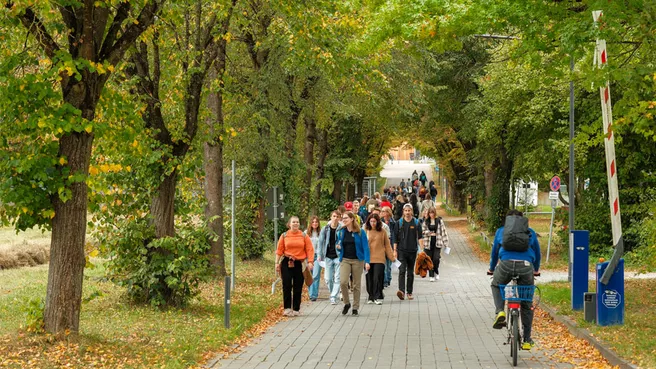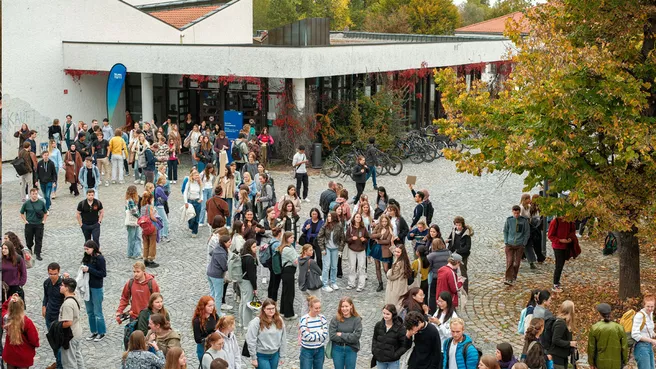The number of new Bachelor's students has almost doubled compared to the level before the pandemic. This impressive increase not only shows the growing interest in agricultural and horticultural courses. The TUM School of Life Sciences at the Weihenstephan campus is developing extremely positively. Prof. Thomas F. Hofmann, President of TUM, expressed his delight at the considerable growth: "The traditional Weihenstephan location is of central strategic importance for the future of TUM and for Bavaria as a business location. This is where we conduct research into sustainable concepts and technologies for securing food for the ever-growing human race. In doing so, we are focusing on new types of cultivation and improved crops as well as on genetic engineering processes, robotics, satellite data and artificial intelligence. The agriculture of the future is sustainable - it reconciles technological innovation, economic success and the needs of our planet with its finite resources".
Weihenstephan: Cutting-edge research for new paths in agricultural science
The scientists at TUM are researching how global challenges can be overcome in the future. They are working on topics such as smart farming, stress-tolerant crops and more sustainable livestock farming. The agricultural science courses have been modernised in recent years and many new professorships have been created. "With a total of 12 new professors so far, we have oriented our agricultural sciences towards the future, and there are still more new professorships in the pipeline. This means we cover all topics in the agricultural sector - from soil to plants, animals, technology and economics," says Prof. Ingrid Kögel-Knabner, Dean of the TUM School of Life Sciences.
Modern study programmes for the agriculture of the future
TUM offers students an attractive range of subjects: In addition to the Bachelor's programme in Agricultural Sciences and Horticultural Sciences, the Master's programmes in Agricultural Systems Science and Agricultural Biosciences are available. In the Agricultural Systems Science programme, students deal with the entire agricultural production system, i.e. the interactions between soils, plants, animals, technology, environment and society. Agricultural Biosciences, on the other hand, focuses on basic biological research for efficient and environmentally friendly production of agricultural and horticultural products.
For many students, sustainability is particularly important: "For me, the study of agricultural and horticultural sciences is a personally strong persuasion, because the creation of new, sustainable ways of producing raw materials is a cornerstone of a sustainable society. I believe that with this degree I am acquiring the knowledge to be a part of a new future," emphasises Jonathan Durlesser, who is now starting his first semester at TUM.
Contact at TUM School of Life Sciences:
Susanne Papaja-Hülsbergen
Campus Office
+49 8161 71 3781
agriculturalsciences.co(at)ls.tum.de
Contact at the TUM Corporate Communications Center:
Magdalena Eisenmann
TUM Corporate Communication Center
Press and Public Relations

